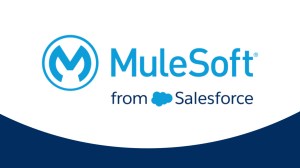MuleSoft CONNECT AMER: Using API-led connectivity to lead through change with speed and agility
As we face the journey ahead in re-opening and growing through the crisis, organizations are facing unprecedented demand for digital capabilities with the increasing need to create connected experiences faster to adapt to changing consumer expectations.
At our digital MuleSoft CONNECT AMER event, we heard from leading companies across financial services, public sector and retail industries on how they are using API-led connectivity to become a composable enterprise driving technology transformation and building future-proof foundations for the new normal.
First, we take a look at a discussion with leading CIOs, who share how their organizations are adapting to change with API-led connectivity. Next, we delve into a panel discussion with MuleSoft’s CTO Uri Sarid and two industry leaders on how their organizations are becoming composable enterprises while creating better experiences for constituents and customers.
A conversation with CIOs: Preparing for the new normal
CIOs from Deluxe and the Indiana Department of Child Services shared how they’re leading through change and helping the business chart the path forward with MuleSoft, in a conversation moderated by seven-time CIO Mark Settle. Discussion centered on the importance of APIs in bringing data together to allow adaptation of business models, and how the shift to work-from-home (WFH) and cloud-based technologies are key to keeping the virtual workforce productive and maintaining business continuity.
To drive organic revenue growth in a sales-centered organization, Michael Mathews, CIO at Deluxe, is leveraging MuleSoft to build a single source of truth around customer, product, employee and other data elements as the company navigates through change. “We have got to bring data together,” said Mathews. “And the only way to do that is through APIs and the API libraries that we”re building with MuleSoft.”
Mathews continued on to detail Deluxe’s digital transformation, from a “company of companies,” to a “company of products” organized around payments, cloud, promotional services and checks. Over the years, Deluxe has acquired over 50 companies. As CIO, Mathews turned to Salesforce and MuleSoft to consolidate more than 52 ERP and financial systems, dozens of customer relationship management systems, and hundreds of marketing systems.
With the COVID-19 pandemic, many employees needed to move to home work environments and business continuity became a paramount issue. Deluxe’s shift to cloud-based technologies helped keep its virtual workforce as productive at home, as in the office. As the organization looks to the future, Mathews shared, “These cloud-based platforms, having the ability to access data and compute power wherever you are, no matter who you are, no matter what location you”re in, is really important.”
Similarly, Kevin Jones, CIO at the Indiana Department of Child Services, is using MuleSoft to maintain business continuity while standing up new initiatives to adapt to change. The organization moved quickly to expand its VPN from supporting 5,000 to 20,000 concurrent connections within a week, enabling employees to work from home during the pandemic.
In an increasingly digital world, the state agency is exploring new digital connectivity via Siri and using video solutions to conduct activities like home visits for people home with COVID-19.
“MuleSoft has proven itself to be the water that breathes life into our infrastructure,” said Jones. “We have mainframes, we have cloud-based solutions, we have all those things still in our architecture that we plan to move out, and MuleSoft is the key. Our entire omnichannel strategy is led by APIs.”
To watch the full video, visit our Twitter, LinkedIn or Facebook.
Next, we delve into a panel session with industry leaders and MuleSoft’s CTO Uri Sarid on the value of composable enterprise in powering connected experiences and meeting unprecedented demands on IT.
Panel session: Becoming a composable enterprise with APIs
Organizations are facing unprecedented disruption to their business with COVID-19, creating increased demands for digital capabilities and the need for accelerated digital transformation to meet it. MuleSoft gathered a panel featuring its CTO Uri Sarid; co-panelists Art Sebastian, VP of Digital Customer Experience at Casey’s, a convenience store chain, and Kevin Jones, CIO at Indiana Department of Child Services on how they adapt to new ways of working and expose business capabilities using APIs.
Art Sebastian shared how being agile helped pivot quickly to deliver priority projects, such as spinning partnerships with third-party delivery companies like DoorDash, using connectivity through MuleSoft.
Casey’s also leverages MuleSoft to make changes quickly for a consistent customer experience. Sebastian shared “I was changing store hours by the day out of the central systems. Just imagine if we had to manually change that data in multiple systems, versus taking the pain and doing it in one system, but it flows through MuleSoft and then we distribute it amongst everything else.”
At Indiana Department of Child Services, speed was also critical to delivering projects to protect constituents. In child welfare, teams needed data from the state’s health department, such as shot and immunization records. They were able to quickly reuse the APIs already created, unlocking, and consuming the necessary data from the Department of Health. “All I need to do is to get alignment and focus on the people transformation to be in alignment with our process and our technology and fill in the gaps.” said Jones. “And having MuleSoft, a ‘water-based’ technology that”s capable of filling any gap and taking the form of any container that I put it in, has enabled us to be able to say to them, ‘Whatever you need, we will provide, and this is when.'”
Sarid also introduced new tools and resources that enable business leaders and developers to easily access public health data and quickly respond to time-sensitive, mission-critical initiatives:
- The COVID-19 Data Platform, an open data service for developers and the Salesforce ecosystem – powering the Tableau COVID-19 Data Hub and the Work.com Command Center.
- The Crisis Response Developer Portal which provides developers with curated COVID-19 related resources, including APIs and data models for the COVID-19 Data Platform; that support how organizations address the COVID-19 pandemic.
In navigating change, building future-proof foundations helps organizations become stronger, more resilient, and more responsive. As our panelists shared, an API-led approach helps organizations accelerate digital transformation to meet new demands.
Go faster and adapt to change with API-led connectivity
With MuleSoft Anypoint Platform, business capabilities are turned into reusable building blocks to quickly bring new products and services to market. This helps Deluxe, Casey’s and Indiana Department of Child Services continue to innovate and emerge through crisis as more agile, digital organizations.
As organizations lead through crisis, MuleSoft and Salesforce have tools to help. To learn more about tools and resources helping companies take the next steps of their recovery journey, visit Work.com and our COVID-19 Resource Hub.
MuleSoft is a registered trademark of MuleSoft, Inc., a Salesforce company. All other marks are those of respective owners.








